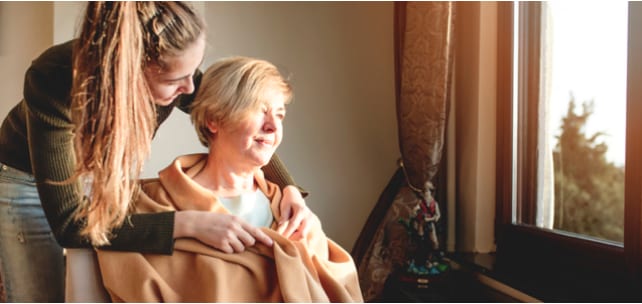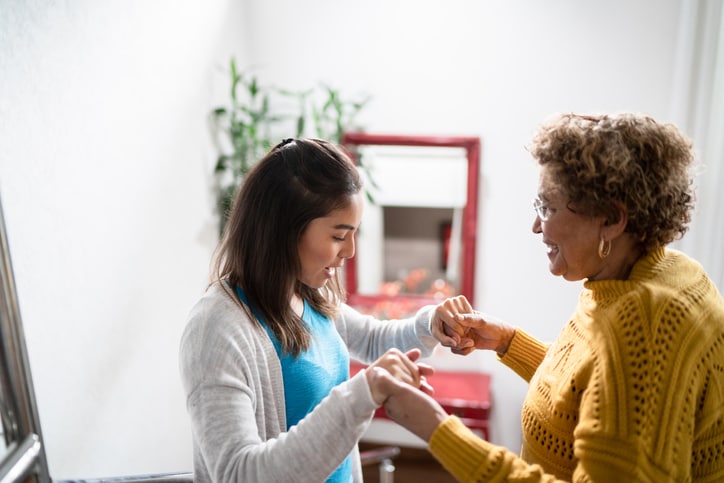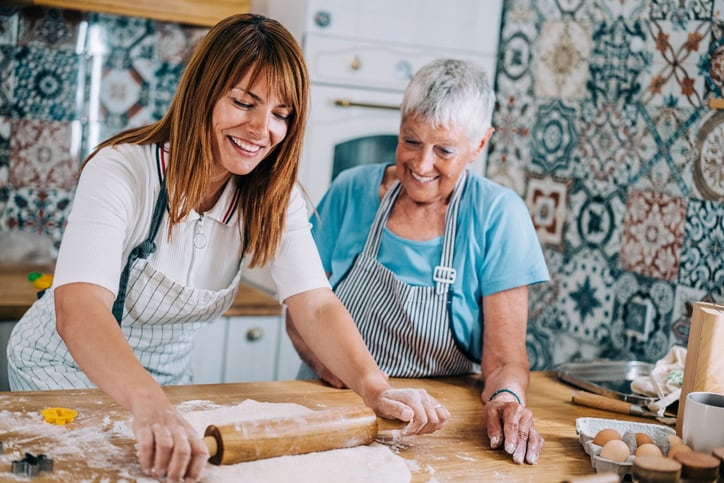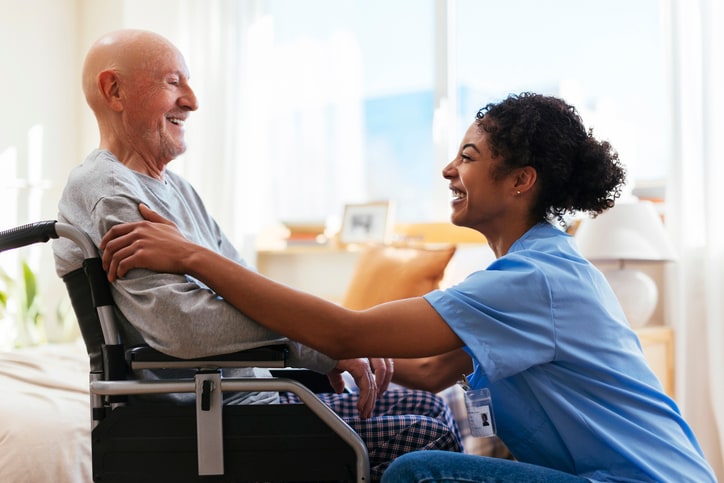By Liz O’Donnell
Caregiving on a good day, can be stressful. Caregiving during a crisis can feel completely overwhelming and that is certainly the experience of many caregivers I’ve spoken to since the coronavirus outbreak started here in the United States. Some adult children cannot see their parents who are in senior living facilities that have moved to restrict visitors. Some are concerned about limiting access to who enters their parents’ homes or are concerned about the health and well-being of the paid caregivers who care for their parents. Some are concerned that their parents won’t stay home and avoid infection. Just today a friend told me her octogenarian mother was teasing her, “Most days you call to see if I’m getting out and socializing and now you’re calling to tell me to stay in!”
As caregivers charged with the well-being of another human being, we work to make their lives easier, functional, and manageable. But the truth is so much in life is out of our control – even in so-called normal times. So what helps in times of crisis, is to focus, and act on, that which we can control, and work to accept that which we cannot.
As we navigate these unprecedented times, here are some suggestions for managing your caregiving situation and controlling what you can control:
Stock up. The Center for Disease Control (CDC) recommends households prepare for possible illness by obtaining a 2-week supply of prescription and over the counter medications, food and other essentials. Get yourself prepared and assist your aging parents, relatives and neighbors in doing the same. Offer to run errands for them or arrange deliveries and assist them with calling insurance companies and pharmacies to order extra medication. One of the most valuable roles you can play as a caregiver during a crisis is that of advocate for your older family members.
Establish alternative methods of communication. In the event you will not be able to visit your aging parent at some point, consider purchasing a tablet for Facetime or Skype sessions – if they are able to operate it. That way, even if you practice social distancing, you won’t have to experience social isolation. If you are a long distance caregiver, reach out to your parent’s neighbor or local Council on Aging and ask if they can serve as your eyes and ears during this time.
Practice self-care. During a time of crisis it is easy to neglect your own well-being. But now more than ever it is important you tend to your own health – both physical and mental – so that you can help care for others. Take walks and get some fresh air each day. Engage in stress reduction tactics like yoga and meditation. Listen to music that lifts your spirits. Limit your exposure to draining people and upsetting news. The news cycle may be 24/7 but our viewing habits shouldn’t be.
Deal in the concrete and don’t pass on “moving facts.” Speaking of the news, when talking to an older person avoid sharing rumors and what -if scenarios. You can help alleviate any stress they may be experiencing by focusing on facts only. For example, instead of engaging in conjecture about whether or not the government will call for a lock down, share what is true right now. “Currently, the governor has …,” or, “At this time, travel has been prohibited only to….” Focus on the facts.
Model the behavior we seek in others. The CDC says, “The best way to prevent illness is to avoid being exposed to this virus,” and medical experts and government officials alike are asking people to avoid mingling with others as much as possible. We cannot control who heeds or ignores these recommendations and it won’t help us to worry about that. But we can control our own behavior and do our best to avoid crowds, wash our hands, and limit non-critical outings right now.
Lead with compassion. In times of crisis, we can ease our stress and the stress of the people we care for by exhibiting compassion and understanding. This is especially helpful when interacting with paid caregivers who may be worried about their own family members while they care for yours. Remember, a smile can go a long way in helping everyone you interact with deal with stress and uncertainty.
Liz O’Donnell is the founder of Working Daughter and the author of Working Daughter: A Guide To Caring For your Aging Parents While Making A Living. For caregiving support, information and resources contact a Senior Care Advisor at Care.com. We are master’s-level social workers specializing in adult and senior care. Call us today at (855) 781-1303 x3 or email questions to careplanning@care.com





